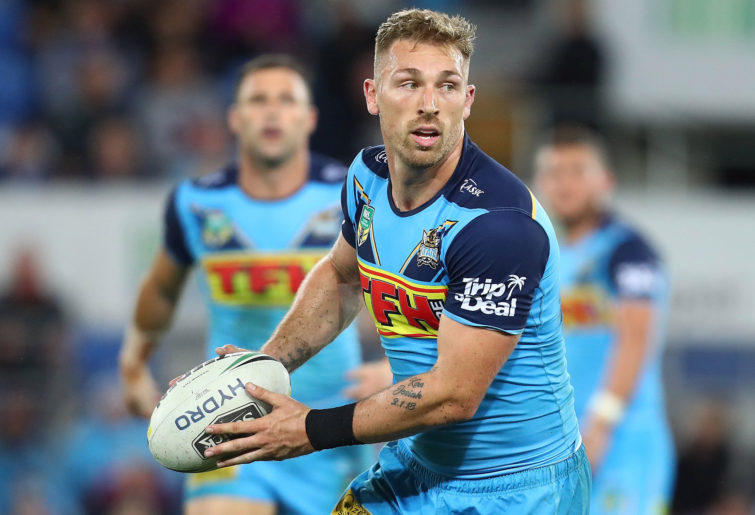A time of crisis can bring out either the very best or the very worst in people.
However, either good or bad, a crisis provides individuals with the opportunity to learn some life lessons and gain some personal perspective – if they are willing to learn.
Recently the NRL faced a potential boycott by the players, who said they would delay the 28 May commencement of training until certain conditions were agreed to between the Rugby League Players Association and the NRL.
Players such as James Graham were vocal on the point, saying that unless they received an outline of employment rights and protocols that ensure player safety, they wouldn’t show up to work – a strange demand from a player who at one time wanted the right to play on even if concussed.
The players of course denied it was a pay issue, but it quickly become clear that was the main sticking point involved in the potential stand-off.
The players wanted an assurance of payment from the NRL before they would return and were unhappy with what the NRL had put on the table.

(Cameron Spencer/Getty Images)
Soon after the issues were resolved, with the players again happy campers after receiving 80 per cent of their wages to be paid rather than what they considered the below-par and unacceptable 70 per cent the NRL originally put on the table.
So what to take out of this saga and what does it all mean?
I guess not much! Only that the game will go on like it always does and that the players will get back to their usual business and the show will go on.
Until the next time they are unhappy.
Until the next time they feel hard done by.
Until the next time they want (and demand) more (vaccinations, anyone?).
Perhaps what could have been taken out of this saga were lessons learnt from certain players who don’t really seem to understand just how the sport of professional rugby league works and just how they fit into it. Perhaps rather than worrying about how big a piece of the pie they were going to get, they could have spent some time learning just how the pie is made in the first place.
Obviously there is no league without the players. The players are the product, and as the game earns huge amounts of revenue the players rightfully deserve to be adequately paid and fairly rewarded for their contributions toward it.
But like any business large or small the most important asset is the consumer market and the people who make up that market. You can have the greatest product in the world, but without a consumer market to sell it to you essentially have nothing.
This is not rocket science or some great modern business philosophy but a simple fact of life in the business world.
In the business of rugby league the fans of the game are the consumer market. No fans means no TV deals, no sponsorship, no merchandise and no money – just a game where a bunch of guys smash the crap out of each other over a piece of egg-shaped rubber. An entertaining and enjoyable pastime for many but not one that would put food on the table or pay the bills. These are simple facts of life, but facts nonetheless that some players sadly either forget, ignore or simply fail to grasp.
Younger players can perhaps be cut a little slack for failing to understand just how it all operates. After all, most of these guys come straight from school into a club environment that in many ways acts as an extension of it.

(Chris Hyde/Getty Images)
Senior players, however, should have a better understanding of how the system works. Their time could have been spent imparting some of this knowledge onto these younger guys rather than squabbling over pay and looking after their own self-interest rather than that of the game.
From the player perspective it is both fair and reasonable to have all the details around their working environment. In a perfect world that is the minimum expectation. The problem is that at that point in time it was anything but a perfect world.
‘Project Apollo’ at times appeared rushed and disorganised. However, that was always going to be the case in an ever-changing social and political landscape that had no precedent. It was always going to have to get things done on the fly and was always likely to be operating right until the last minute in order to have everything nailed down.
The messaging from the players could have been around the lines that they still have several details to be resolved and are working with the NRL towards resolving them but are happy to continue business as usual as they continued to work together towards getting the game up and running again. The players, after all, had already been paid up until the end of May.
Instead we had players threaten to stay at home until their own interests were taken care of first, a luxury not afforded to many in these times, including staff members of their own clubs.
In a situation where almost a quarter of the Australian workforce was either unemployed or underemployed due to the COVID-19 pandemic and their own industry faced the prospect of losing millions, demanding certainty on everything involving themselves smacked of arrogance, entitlement and greed.
Loyalty in this instance should not have been reserved only for the almighty dollar and their own interests but extended to the millions of fans who have helped make this great game what it is today. It was time to give a little back.
Yes, this crisis provided the players with the opportunity to learn some valuable lessons around the meaning of community and gain some true perspective through all the sacrifice, hardship, adversity and loss that so many have had to suffer through during this pandemic. Unfortunately, the opportunity was missed.
from The Roar https://www.theroar.com.au/2020/05/22/lessons-nrl-players-have-failed-to-learn/

0 Comments